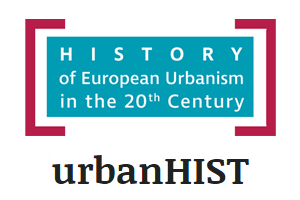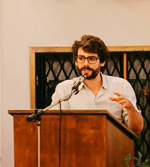
Project: Contemporary History of Technical Infrastructures in European Cities and in Urban Planning
Supervisors: Luis Santos y Ganges (UVa) and Jaroslav Hofierka (UPJŠ)
Researchgate: https://www.researchgate.net/profile/Elvira_Khairullina2
LinkedIn: https://www.linkedin.com/in/elvira-khairullina-30430ba0/
Elvira Khairullina, Bachelor’s degree in Architecture (Astana, Kazakhstan, 2012) and Master’s degree in Urban Planning (Granada, Spain, Erasmus Mundus scholarship, 2013-2015), and PhD candidate UrbanHist European Joint Doctorate Program (Valladolid, Spain; Košice, Slovakia). During the project participated in several national and international conferences, including International Association for the History of Transport, Traffic and Mobility Conference (2018), where was awarded the prize for the best paper and communication among young researchers. Also, has several publications in journals and conference proceedings. There were realized several research visits to national and municipal archives, research centres, libraries, urban planning departments, transport companies and museums in various cities of Germany, Slovakia, Czech Republic, Russia and United Kingdom. The research is being developed using resources from six languages: English, Spanish, Russian, Czech, Slovak and German.
The topic of her doctoral research is «Tramways in Socialist Urban Planning in the 1960s and 1970s: Urban and Transport Models in the USSR, GDR and CSSR». The scale of research is transnational, including three European communist countries the Soviet Union, the German Democratic Republic and the Czechoslovak Socialist Republic, the planning of which is always related to theory and practice in other European countries. The working perspective is interdisciplinary – Urban History and Transport History (transport planning, transport engineering and transport economy).
One of the important ideas of the research is that there were no homogeneous and consensual solutions and policies on transport planning in the developing countries of the socialist countries, but there was diversity and confusion, disparity between theory, ideas and thinking, intentions and urban planning reality. Transport planning ideas were adjusted, adapted and changed in every country according to economic needs, professional understanding, pre-existence of transport infrastructure and level of technological development. As a result, it could be defined some important differences in tram planning in urban space and structure, which helped to understand the transport and urban model in what could be called the socialist city.








